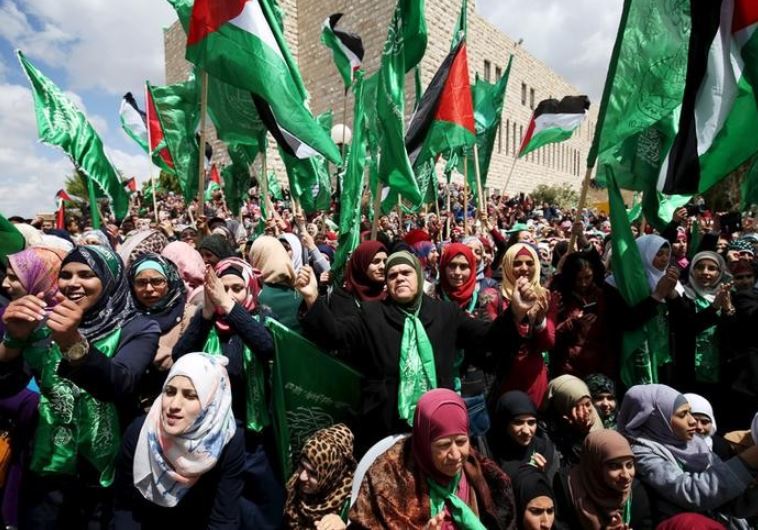Gershon Baskin presents an exercise in creative thinking and problem solving where the focus is on interests, needs, fears and concerns, so that the participants are free to relieve themselves of representing official positions.
The Israeli-Palestinian conflict has never been so close to final resolution as it is right now. At Camp David, in July 2000, for the first time, the two leaders of the conflicting national movements addressed, for the first time, the main issues in conflict. After nearly seven years of an engaging peace process during which time the sides did everything possible to avoid confronting the main issues, those issues are now in full view for public debate. Israeli public opinion is more ready now than ever before to accept “painful” compromises and Palestinian public opinion is also relating to new realities and possibilities that have never existed before.
Both sides face the ticking clock. Mr. Barak’s coalition government has lost its majority and a call for new elections is only one vote away with the Knesset being divided 60-60. When the Knesset comes back from its summer holiday on October 29 the first order of business will be an opposition call to disperse the Knesset and hold elections within 90 days. If Barak is successful in reaching an agreement with Arafat, it is likely that he will initiate the call for elections. If he has no agreement, the opposition will take the initiative, eventually winning the vote – if not immediately, then the first time that Barak angers one of his 60 supporters in the House. Barak facing the electorate with an agreement is a Statesman, a very different Barak than the defeated, disappointed, angry and isolated politician who failed to achieve his major public policies that he promised before being elected 15 months ago.
Arafat has promised his people victory – an independent Palestinian state on all of the lands occupied by Israel in 1967with East Jerusalem as its capital and the right of return for the refugees. After Camp David, when it became apparent to Palestinians that Arafat had agreed to Barak’s concept of “settlement blocs” being annexed to Israel, Palestinian nationalists began calling Arafat the “Minister of Liquidation”. Abu Mazen, Arafat’s deputy and one of the architects of Oslo (hated for his moderation by many Palestinians) took the hard line in Camp David and came home to Ramallah being called “the Loyalist.” Arafat has told his people thousands of times that the compromise they made was in Oslo when they gave up 78% of historic Palestine in their recognition of the State of Israel. He has said that he would compromise no more on Palestinian rights. His own people agree with him, but most of the world, especially the Israelis and the Americans, have been strangely surprised by his refusal to compromise any more.
Each side believes that the other side made no compromise in Camp David. Both sides have come closer, with the Israelis moving more than the Palestinians (but the Israelis have also held most of the tangible assets to be negotiated). Yet both sides believe that only their leader made any movement towards the other. Now Barak is waiting for Arafat to move and Arafat is waiting for Barak.
The Palestinian positions are not tactical; they are strategically based on points of principle around what they call “international legitimacy” – the application of international law (mainly the Fourth Geneva Convention) and United Nations Resolutions. There is no doubt that this international legitimacy is clearly behind and in support of the Palestinian position. Israel, on the other hand, has always rejected the applicability of the Fourth Geneva Convention and has always viewed the United Nations as a basically anti-Israel (anti-Semitic) body that will always support the Arabs against Israel. It has, therefore, never taken UN Resolutions very seriously. The Israeli Attorney General, shortly before the convening of the Camp David summit issued an opinion that UN Security Council Resolution 242 was not applicable with regard to the West Bank even though all of the agreements signed since Oslo and even the invitation to the Madrid Peace Conference in 1990 stated that the peace process was based on that resolution. The U.S. Department of State quickly issued a statement by Mrs. Albright that the UN Resolution 242 was the basis of the peace process. This was of vital importance to the Palestinians, who demand that Israel withdraw from all of the West Bank, Gaza and East Jerusalem on the basis of that resolution.
My Predictions
When the Knesset comes back from holiday, what are Israel and the Palestinians going to agree to? Here is my assessment of the situation.
Israel will not agree to
a militarized Palestinian state.
give up control of airspace over the West Bank and Gaza.
give up its military presence in the Jordan valley.
the Palestinian state making military pacts and alliances with third parties.
give up 100% of the West Bank and Gaza.
accept the principle of the right of return
take primary responsibility for the refugee problem
relinquish sovereignty over all the Old City of Jerusalem.
sign any kind of significant deal with the Palestinians unless it is a final declaration on the end of the conflict.
The Palestinians will not agree to
any Israeli presence or control over the Haram al Sharif (The Temple Mount).
pockets of Israeli sovereignty in the West Bank and Gaza (or Israeli Bantustans, as they call them).
any Israeli control of Palestinian external borders, with Jordan, Egypt or the rest of the world through a seaport or airports.
any Israeli legal ability to prevent the territorial integrity of a West Bank-Gaza linkage.
any significant Israeli annexation of West Bank or Gaza territories without a fair land exchange in quantity and quality.
If the Palestinians agree to sign a final status agreement then
Israel will agree to:
Palestinian statehood.
meaningful elements of real Palestinian sovereignty.
withdraw from all of the Gaza Strip.
withdraw from about 94% of the West Bank.
a Palestinian sovereign corridor between West Bank and Gaza.
some kind of land exchange for areas to be annexed to Israel.
Palestinian control, with third party supervision, over entry and exit points to the rest of the world.
whatever economic and trade regime the Palestinians choose.
continue to employ many Palestinians in the Israeli economy.
the sharing of water resources
legalized Palestinian control over the Haram eSharif.
transfer significant parts of Jerusalem to the Palestinian state including areas now within Jerusalem’s municipal boundaries.
the capital of Palestine being located in the sovereign Palestinian areas in Jerusalem.
transfer the airport in Jerusalem to the Palestinian state.
that the State of Palestine will determine its own immigration policy.
that all of the 1967 displaced persons return to their homes.
absorb a significant number of refugees under a humanitarian plan for family reunification.
pay significant compensation for Palestinian refugee properties left in Israel as part of international aid to refugees.
The Israeli offer is not 100% of the Palestinian demands. The offer on Jerusalem does not satisfy Palestinian aspirations, but the door is not closed to continuing the discussions on this issue in the future. Perhaps the most difficult issue for the Palestinians to accept is Israeli non-recognition of the principle of the right of return. If this is an absolute iron-clad Palestinian condition, there will never be an agreement. If, however, the Palestinians were willing to find some language that would enable Israel to work with them and the international community in finding solutions to refugee problems, such as poverty, housing, employment, education, etc. there could be very significant amounts of international and Israeli assistance available. This would require that the Palestinians accept that once there is a real independent Palestinian state then “going home” would mean to the State of Palestine. If this could be acceptable then an agreement and peace are real possibilities.
The Israel/Palestine Center
We in IPCRI (the Israel/Palestine Center for Research and Information-a joint Palestinian-Israeli public policy think tank established in 1988) have been working for years to invent ideas to answer the dilemmas.
Our program has aimed to create an atmosphere where political adversaries can engage in constructive dialogue on issues such as the future of Israeli settlements, the question of Palestinian refugees, issues of borders, sovereignty and security, as well as economic matters in the peace process.
IPCRI focuses on the analysis and understanding of interests of conflicting parties, rather than positions. This has been a method which has proven very useful in both Track I (official track) and Track II (unofficial) activities. IPCRI’s addition to the methodology is in combining officials and non-officials.
This is not a negotiating forum. It is not an attempt to create a back channel or another Oslo. It is meant to be an exercise in creative thinking and problem solving. Since the focus is on interests, needs, fears and concerns, the participants are free to relieve themselves of representing official positions.
A product of our recent work is a draft final status peace proclamation that I have authored based on meetings we held. It was widely distributed to the negotiators both before and after the Camp David Summit. It can be viewed on IPCRI’s web page at: <http://www.ipcir.org> and is being revised. IPCRI will continue with this effort due to the requests we have received by the Israeli and Palestinian negotiators.


